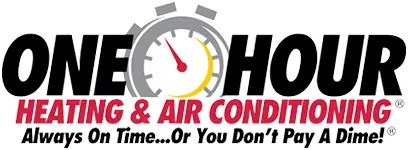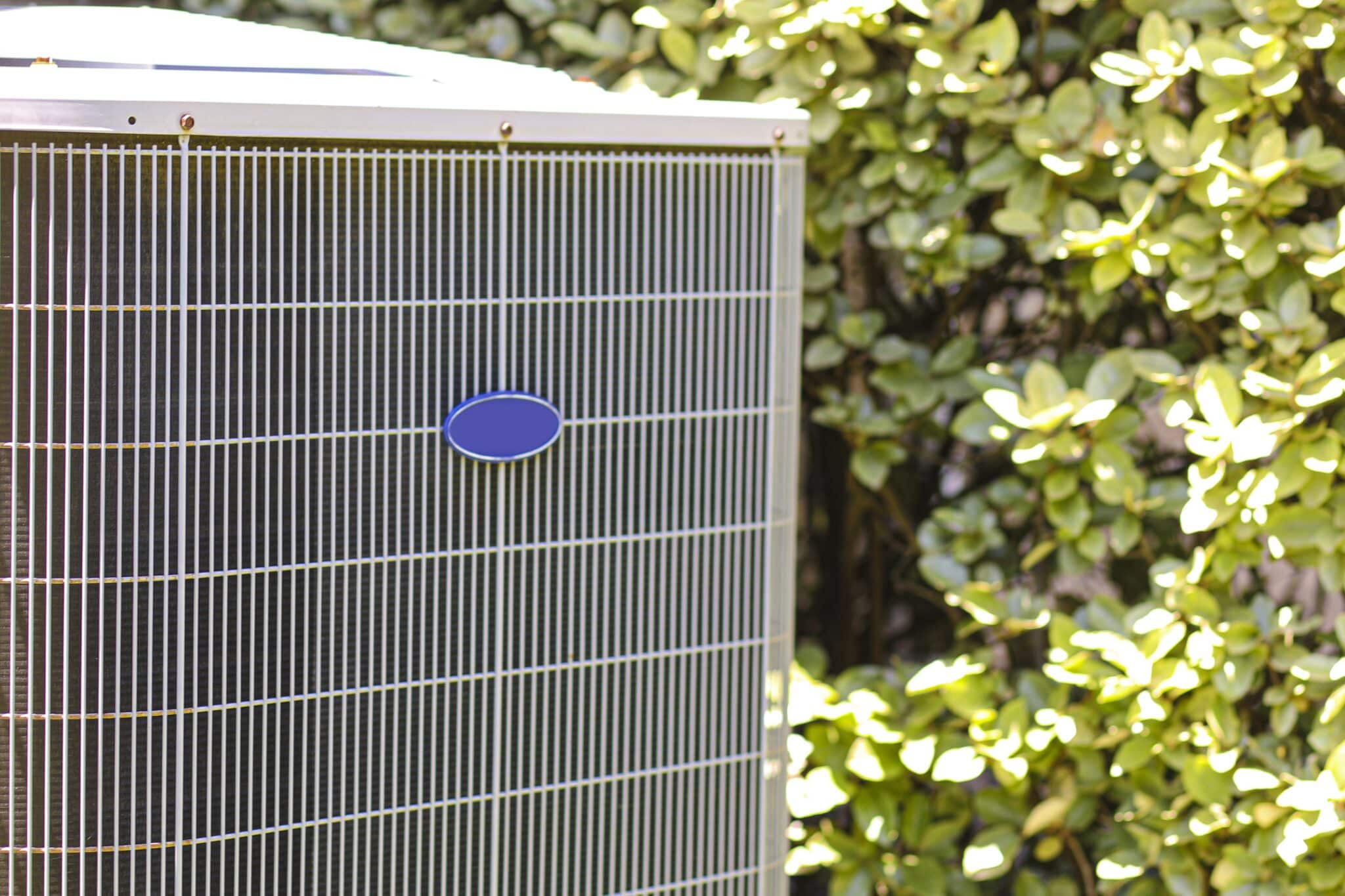- Proper insulation is key to enhancing HVAC efficiency by reducing energy loss and minimizing wear on the system.
- Insulation acts as a thermal barrier, helping your HVAC system maintain a stable temperature with less energy.
- Poor insulation leads to higher energy bills, increased strain on HVAC equipment, and reduced system lifespan.
- Types of insulation like fiberglass, spray foam, and reflective insulation each offer unique benefits depending on your climate.
- Investing in quality insulation not only cuts energy costs but also boosts property value and extends HVAC longevity, making it a smart, long-term investment.
Ever wonder how much energy your HVAC system wastes due to poor insulation? Understanding the critical role insulation plays can help you avoid unnecessary energy loss and high utility bills.
Insulation acts as a barrier between your living space and the outside world, controlling how much heat enters or leaves your home. Without proper insulation, your HVAC system works harder to maintain a comfortable temperature, leading to increased energy consumption and wear on your equipment. Over time, this inefficiency can result in higher costs and reduced lifespan for your HVAC system.
Understanding HVAC Efficiency
Definition and Importance
What exactly is HVAC efficiency, and why should it matter to you? HVAC efficiency refers to how effectively your heating, ventilation, and air conditioning system performs its job of maintaining a comfortable indoor climate while using the least amount of energy. The higher the HVAC efficiency, the less energy your system uses, which translates to lower utility bills and a reduced environmental impact.
Efficient HVAC systems don’t just save you money—they also provide a more consistent and comfortable living environment. Systems with high HVAC efficiency maintain steady temperatures and humidity levels, reducing the chances of hot or cold spots in your home. Moreover, they tend to run quieter and require less frequent maintenance, contributing to a more peaceful and hassle-free experience.
How Insulation Plays a Role
Now, how does insulation tie into all this? Insulation directly impacts your HVAC system’s efficiency by controlling how much heat is lost or gained through your home’s walls, roof, and floors. In a well-insulated home, the HVAC system doesn’t have to work as hard to maintain the desired temperature, because less conditioned air escapes and less outdoor air seeps in.
When your home lacks sufficient insulation, your HVAC system compensates by running longer and more often. This not only increases your energy consumption but also puts additional wear and tear on your system, leading to more frequent repairs and a shorter lifespan.
insulation is a key factor in achieving optimal HVAC efficiency. It supports your system by creating a thermal envelope around your home, keeping the indoor temperature stable with minimal energy input. The better your insulation, the less your HVAC system has to work, resulting in lower energy bills and a longer-lasting system.
The Impact of Poor Insulation on HVAC Systems
Energy Loss and Increased Costs
Have you ever noticed your energy bills rising despite using your HVAC system the same way? Poor insulation could be the culprit. Insulation acts as a barrier that prevents heat from escaping in the winter and entering in the summer. When this barrier is weak or absent, your home loses more energy, forcing your HVAC system to work harder to maintain a comfortable temperature. This extra effort leads to increased energy consumption, which directly impacts your utility bills.
In poorly insulated homes, energy loss can be significant. Heat can escape through walls, roofs, floors, and even poorly insulated ductwork. This loss means your HVAC system needs to run longer and more frequently to keep up, resulting in higher operational costs. Over time, this can add up, making your home more expensive to maintain and less environmentally friendly.
Strain on HVAC Equipment
Poor insulation doesn’t just hurt your wallet—it can also put your HVAC system at risk. When your system has to work harder to compensate for lost energy, it experiences more wear and tear. This constant strain can lead to frequent breakdowns, more repairs, and even early replacement. The harder your HVAC system works, the shorter its lifespan becomes, leading to higher costs over time.
Additionally, overworking your system can cause it to run less efficiently, leading to inconsistent temperatures and reduced comfort levels in your home. Rooms may become too hot or too cold, and the overall air quality could suffer as the system struggles to keep up.
In short, poor insulation not only drives up energy costs but also shortens the life of your HVAC system. By improving your home’s insulation, you can reduce the strain on your equipment, lower your energy bills, and enjoy a more comfortable living environment.
Types of Insulation That Enhance HVAC Efficiency
Fiberglass Insulation
Fiberglass insulation is a popular and effective option for improving HVAC efficiency. Made from fine glass fibers, it traps air within its structure, creating a thermal barrier that slows heat transfer. Available in batts or rolls, it’s easy to install in walls, attics, and floors, making it a cost-effective choice for homeowners. When installed properly, fiberglass insulation helps reduce energy loss, allowing your HVAC system to maintain a consistent temperature with less effort.
Spray Foam Insulation
Spray foam insulation expands upon application, filling gaps and sealing air leaks. Ideal for hard-to-reach areas, it enhances HVAC efficiency by minimizing air leakage, improving indoor air quality, and reducing energy consumption. Though more expensive upfront, spray foam can lead to significant long-term savings.
Reflective Insulation
Reflective insulation is perfect for hot climates, reflecting radiant heat away from your home. Typically installed in attics, it reduces the cooling load on your HVAC system, resulting in lower energy bills and a more comfortable environment.
How Proper Insulation Reduces Energy Consumption
Thermal Resistance (R-Value) Explained
Have you heard of the term R-Value but aren’t quite sure what it means? The R-Value is a measure of insulation’s ability to resist heat flow. The higher the R-Value, the better the insulation’s effectiveness. Different types of insulation materials have varying R-Values, and choosing the right one for your home is crucial for maximizing HVAC efficiency.
For example, in colder climates, you’ll want insulation with a higher R-Value to keep the heat inside during winter. In contrast, homes in warmer climates might prioritize a lower R-Value but focus on materials that reflect heat, like reflective insulation. Understanding and choosing the appropriate R-Value for your insulation ensures your HVAC system doesn’t have to work as hard to maintain a comfortable temperature, leading to significant energy savings.
Insulation and Seasonal Efficiency
How does insulation affect your home throughout the year? Seasonal HVAC efficiency is where insulation truly shines. In winter, proper insulation keeps the warmth generated by your heating system inside, reducing the need for constant heating. During summer, it prevents outdoor heat from infiltrating your home, reducing the demand on your air conditioning.
This seasonal adaptability means that no matter the time of year, your HVAC system can operate more efficiently. In winter, you’ll notice your home stays warmer longer without your heater running constantly. In summer, your air conditioner won’t have to work overtime to keep your home cool. By reducing the workload on your HVAC system, insulation helps you save on energy costs year-round while maintaining a comfortable living environment.
By properly insulating your home, you enhance your HVAC system’s performance during both hot and cold months. This not only cuts down on energy consumption but also contributes to a more consistent and comfortable indoor climate.
Insulation Best Practices for HVAC Efficiency
Ideal Insulation for Different Climates
Choosing the right insulation for your climate is crucial for maximizing HVAC efficiency. In colder climates, insulation with a high R-Value is essential. This type of insulation prevents heat from escaping your home, keeping the warmth in during the winter months. Materials like fiberglass or spray foam with high thermal resistance are ideal choices.
In contrast, warmer climates benefit more from reflective insulation or materials with lower R-Values that can effectively block heat from entering your home. Reflective insulation, in particular, is excellent for hot climates because it reflects radiant heat, reducing the cooling load on your HVAC system.
Insulating Ductwork and Its Importance
Did you know that properly insulating your ductwork is just as important as insulating your walls and attic? Ducts that run through unconditioned spaces like attics or basements can lose or gain heat, making your HVAC system work harder to maintain the desired temperature. By insulating your ductwork, you can minimize energy loss, ensuring that conditioned air stays at the right temperature as it moves through your home. This not only improves your system’s efficiency but also enhances overall comfort.
The Role of Air Sealing in Enhancing HVAC Efficiency
Common Air Leaks in Homes
Have you ever felt a draft even with the windows closed? Air leaks are common in many homes, and they can significantly impact HVAC efficiency. These leaks often occur around windows, doors, electrical outlets, and attic hatches. They allow conditioned air to escape and unconditioned air to enter, forcing your HVAC system to work harder to maintain a stable temperature.
Other less obvious places where air leaks are common include gaps around plumbing and wiring, chimneys, and recessed lighting fixtures. Even small leaks can add up, leading to substantial energy loss over time. Identifying and sealing these leaks is crucial for improving your home’s overall energy efficiency.
Techniques for Effective Air Sealing
Sealing air leaks doesn’t have to be complicated, but it does require attention to detail. Caulking and weatherstripping are two of the most common methods for sealing air leaks around doors and windows. Caulk is used to seal small gaps and cracks, while weatherstripping is ideal for sealing the movable parts of windows and doors.
For larger gaps, such as those around plumbing pipes or attic hatches, spray foam insulation can be highly effective. It expands to fill gaps and provides both insulation and air sealing in one step.
For areas like the attic, where leaks are often significant, installing a properly insulated attic hatch can make a big difference. Additionally, sealing ducts with mastic or metal tape helps ensure that the air your HVAC system conditions reaches its intended destination without being lost along the way.
By taking the time to seal air leaks, you can improve your HVAC system’s efficiency, reduce energy waste, and enjoy a more comfortable home.

Cost-Benefit Analysis of Insulation for HVAC Efficiency
Upfront Costs vs. Long-Term Savings
Investing in insulation might seem like a significant upfront expense, but the long-term savings make it a wise financial decision. The initial cost of installing high-quality insulation, such as spray foam or high-R-Value fiberglass, can vary depending on the size of your home and the type of insulation you choose. However, these costs are quickly offset by the savings on your energy bills.
For example, homeowners who invest in proper insulation typically see a reduction in their heating and cooling costs by 20% to 30%. Over time, this reduction in energy usage adds up, effectively paying for the cost of insulation installation within a few years. After that, the continued energy savings directly contribute to lower utility bills and increased disposable income.
Impact on Property Value
In addition to energy savings, properly insulating your home can significantly increase its property value. Prospective buyers are often willing to pay more for a home that is energy-efficient, knowing they will save on utility costs and enjoy a more comfortable living environment. Homes with upgraded insulation also tend to have better energy ratings, which can be a strong selling point in a competitive market.
Moreover, well-insulated homes are seen as more environmentally friendly, aligning with the growing trend of sustainability-conscious consumers. This added value can be especially appealing in markets where energy efficiency is a priority, such as in regions with extreme weather conditions.
Overall, the combination of reduced energy costs and increased property value makes the investment in insulation a smart financial move, offering both immediate and long-term returns.
How Insulation Affects HVAC Sizing and Performance
Proper Sizing for Optimized HVAC Efficiency
Did you know that the right insulation can directly impact the size of your HVAC system? Proper insulation reduces the amount of heat loss or gain in your home, which means your HVAC system doesn’t need to work as hard to maintain a comfortable temperature. As a result, you may be able to install a smaller, more efficient HVAC unit that meets your home’s heating and cooling needs without wasting energy.
An oversized HVAC system can lead to short cycling, where the system frequently turns on and off. This not only wastes energy but also leads to inconsistent temperatures and increased wear and tear on the equipment. By improving your home’s insulation, you ensure that the system size is correctly matched to your home’s needs, optimizing HVAC efficiency and prolonging the life of your HVAC unit.
The Connection Between Insulation and HVAC Longevity
Insulation doesn’t just make your HVAC system more efficient—it also extends its lifespan. When your home is well-insulated, your HVAC system operates more smoothly because it doesn’t have to compensate for temperature fluctuations caused by poor insulation. This reduces the strain on the system, leading to fewer breakdowns and less frequent repairs.
For example, in homes with inadequate insulation, the HVAC system may run continuously during extreme weather, leading to overheating and premature component failure. Conversely, in a well-insulated home, the system runs at optimal intervals, maintaining comfort without excessive wear. Over time, this reduced strain translates into a longer lifespan for your HVAC system, saving you money on potential repairs and replacements.
investing in proper insulation not only allows for a more appropriately sized HVAC system but also contributes to the long-term durability and performance of your heating and cooling equipment.
FAQs about HVAC Efficiency
-
How does insulation improve HVAC efficiency?
Insulation improves HVAC efficiency by reducing heat transfer between your home and the outside environment. This means your HVAC system doesn’t have to work as hard to maintain a comfortable indoor temperature, leading to lower energy consumption and reduced wear on the system.
-
What is the best type of insulation for my region?
The best type of insulation depends on your climate. In colder regions, high R-Value insulation like fiberglass or spray foam is ideal for retaining heat. In warmer climates, reflective insulation is effective at reflecting heat away from your home. Consulting with a local insulation expert can help you choose the right type for your specific needs.
-
How often should insulation be replaced?
Insulation typically lasts for many years, but it can degrade over time. You should consider replacing or upgrading insulation if you notice drafts, uneven temperatures, or increasing energy bills. Generally, insulation can last 15-20 years, but this can vary depending on the material and environmental factors.
-
Can I install insulation myself, or should I hire a professional?
While some types of insulation, like fiberglass batts, can be installed by DIY enthusiasts, it’s usually best to hire a professional. Proper installation is key to ensuring maximum efficiency, and professionals can address issues like air sealing and insulating hard-to-reach areas that DIYers might miss.
-
Does insulation impact indoor air quality?
Yes, proper insulation can improve indoor air quality by reducing air leaks that allow dust, pollen, and other allergens to enter your home. Additionally, materials like spray foam can act as an air barrier, further enhancing air quality by keeping outdoor pollutants out.






